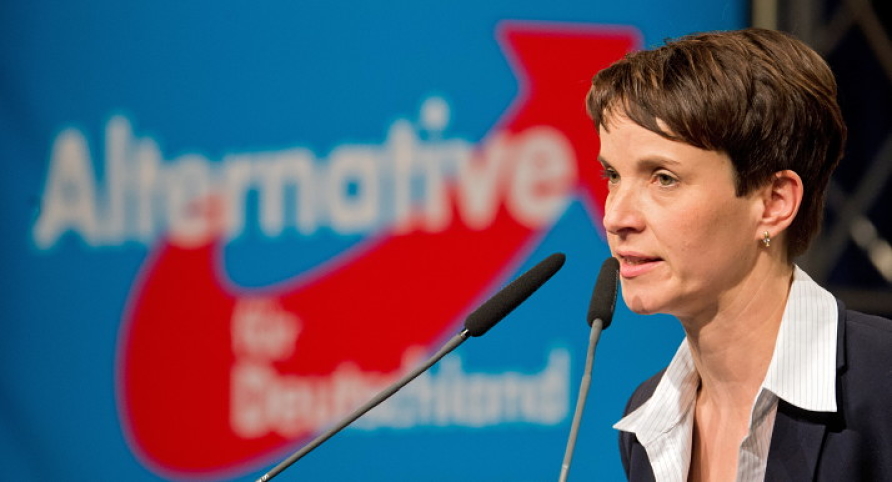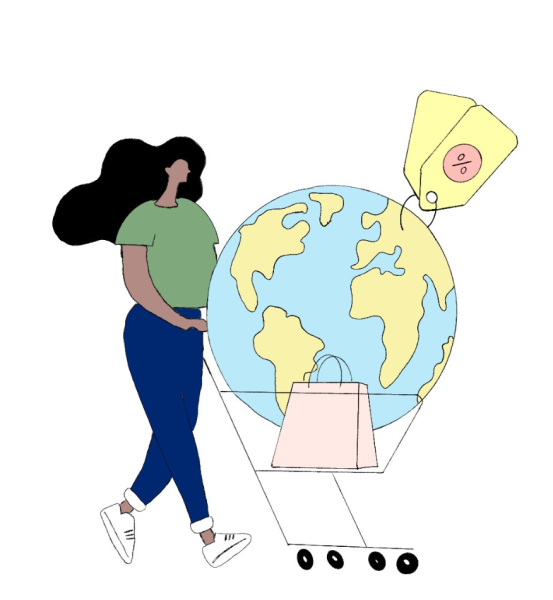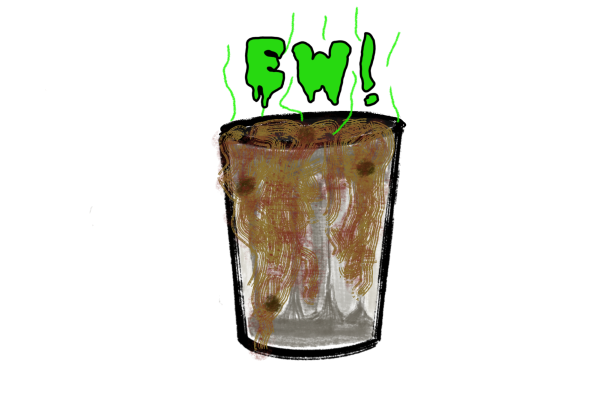The Ripple Effect: Europe’s chain reaction
A balancing act, far-right style
Photo by Politico Europe
Frauke Petry, leader of the right-wing Alternative for Germany (AfD) party, has generally kept up an appearance of being more measured than her colleagues there, but some of her incendiary remarks are not as moderate as her demeanor suggests.
If ever I could point at something and call it a political chain reaction, it would be the series of elections in Europe this past year.
In France, way back in May, Marine Le Pen’s pro-France-and-only-France National Front (FN) party was absolutely trumped by Emmanuel Macron and his party, En Marche!, winning 66.1 percent of the vote. But although the FN lost, it snagged over one-third of the votes cast — a record for the party.
In the Netherlands, Geert Wilders’ and his Dutch Party for Freedom (PVV) lost to the country’s incumbent prime minister, Mark Rutte. But while the PVV was defeated, some of its (less extreme, more palatable to the general public) ideas were still carried over by Rutte, whose participation in an echo chamber of populist campaign slogans factored into his victory.
Now take a look at Germany: on Sept. 24, citizens cast their votes to determine how many seats each political party gets in the Bundestag (their parliament), and effectively determined who the next chancellor would be in the process. While the status quo was preserved with incumbent Chancellor Angela Merkel’s victory, ripples were still made by right-wing party Alternative for Germany (AfD).
Although the anti-immigration, anti-climate change policy, anti-European Union AfD only reached third place, with 13 percent of the vote according to CNN, and it’s torn between a moderate and far-right subdivision, but there’s a trend here. As the string of near-misses lengthens, the extremist portions of these right-wing parties only get more extreme.
Already, the less radical side of the AfD is weakening, with the refusal of co-chairwoman Frauke Petry (one of its more moderate leaders) to join the AfD’s parliamentary party in the Bundestag due to conflict with its other leaders.
In describing Petry as moderate, I must clarify that she’s “moderately moderate.” Petry leads the AfD like a terrifying schoolteacher would rule over a classroom — according to the New Yorker, after all, protesters who show up to her rallies get invited to speak onstage, and then have their arguments methodically torn apart by her. Both she and the other somewhat-moderate AfD leader, Alice Weidel, run damage control whenever Alexander Gauland (Weidel’s co-candidate in the election) continues his running pattern of saying something controversial enough to get in the day’s headlines.
Damage control, however, doesn’t necessarily mean disowning the extreme remarks of other AfD politicians, seeing as Petry has made similarly controversial remarks that refugees illegally crossing the border must be shot if necessary, and Weidel’s reputation for imperturbability has been marred by the unearthing of a racist email, according to Deutsche Welle.
Petry’s stepping back is less of a loss of a moderating influence in the AfD, then, and more of a realization of what it is in its core. She may cite the fact that there were disagreements over whether or not Björn Höcke, who heads the AfD in the Thuringia region, should be shut out from the party for polarizing statements about the Holocaust, but her leaving will eventually lead to the damage control team stepping back too and letting such hardliners grow stronger.
Far-right parties have recently tried outwardly toning down their stances and forcing rose-colored glasses on the rest of the world to lure in more supporters, and while that strategy may have worked at the start, their string of almost-successes in France, in the Netherlands and in Germany has shown them that they still need one last surge of voters for victory.
And where to get it? They’ve all but siphoned out the ambivalent voters, and an appeal too much further left would contradict their own principles. Even Germany’s Left Party, which has kept true to its on-the-nose name by pledging to oppose Petry, Weidel and co., has seen a sizeable chunk of its own voters switch over to the AfD. There’s not much further to wring out there.
The time has come, the far-right’s decided, to crush those rosy glasses, reveal itself and let those last few come from the furthest right. After zooming out to see the balancing act in its entirety, the AfD’s surprising snatching of third place for the chancellery shouldn’t be a surprise, then, seeing as it’s always been there, albeit with a reputation somewhat softened by smoke and mirrors.
We’ll see if the facade keeps collapsing in the eight major European elections left this year.












Anonymous • Oct 2, 2017 at 8:13 pm
ugh this article is flawless i am your biggest fan aishwarya